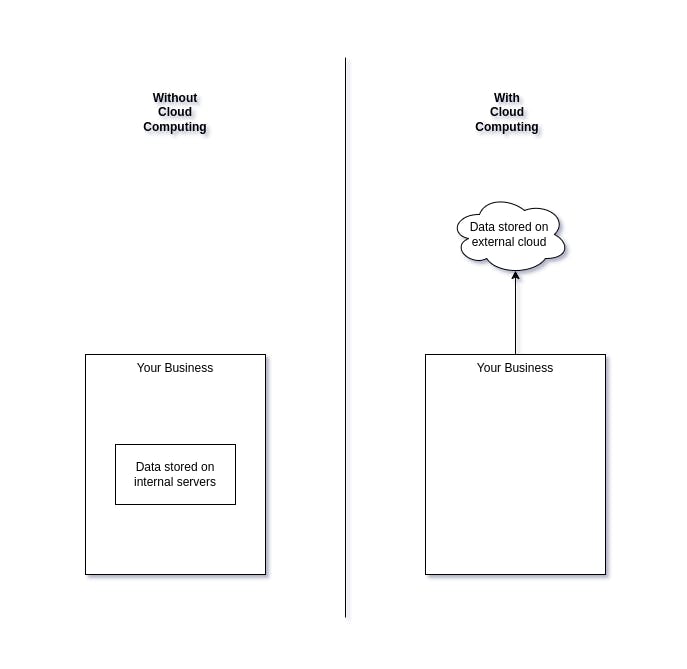
Photo by Jelleke Vanooteghem on Unsplash
Why Cloud Computing For Business?
Cloud computing is making headlines around the world, but why should your business host its IT infrastructure on the cloud?
Introduction
If you even somewhat keep up to date with the news and latest trends, you would have heard of cloud computing. In this article, I'm going to provide the use case for cloud computing for your business vs a traditional in-house solution, even if you're a non-technical person.
Why cloud computing
What is cloud computing?
Cloud computing is just a third-party provider that handles your IT infrastructure. The name "cloud" refers to the fact that you access your data remotely, instead of from servers that your business manages internally themselves.

So essentially, cloud computing is just a way of outsourcing your computing resources to another company to handle them for you which you can then access over the internet.
How does it benefit your business?
Instead of having to manage and handle your own servers, you pay another company to manage them for you automatically. This allows you to focus on solving the business problem at hand by removing the challenges of software solutions including scalability, security, reliability, and managing an entire IT department.
An example without cloud computing
Let's say that a growing business needs a way to store and query their sales data, and they will solve this problem WITHOUT cloud computing. At the bare minimum, the business will need a server running a database, and most likely someone to set this up for them. In addition.
Now let's say that the business keeps expanding and needs to store more data. The business will need to purchase and install more servers and hire someone to set them up, maintain them, and perform administrative tasks such as backups. Now the business has so many servers that you need an entire IT department to manage them for you.
However, what happens if there is a power outage in the business's location or a natural disaster? What happens if the servers are compromised through some security exploit? What happens if your hardware fails? These are all problems that your business has to think about and handle if you decide to host your IT infrastructure yourself, not to mention the operational costs of setting up and handling all of this yourself can be very pricy.
An example with cloud computing
Let's say that another growing business needs a way to store and query their sales data, and they choose to go with a cloud computing provider to handle this all for them. The business simply just adds their credit card and sets up their required infrastructure in minutes with an easy-to-use drag and drop interface. The business doesn't need to hire anyone and is only charged for the computing resources it is using, which for a small business will be very cheap.
Now let's say that the business keeps expanding. The business's cloud infrastructure will automatically scale up to meet the demand and the company simply just pays for the extra resources it is using. No need to hire an IT department.
In addition, the business can rest assured knowing that your cloud provider takes care of making sure that all of your data is always accessible, regardless of most black swan events that may occur such as power outages or hardware failures.
However, the best part for the business is that they never need to know about any of the underlying infrastructure storing their data. It just works, no questions asked, allowing them to focus on providing value to their customers with the tools to do so.
How can you get started?
So you're convinced that cloud computing is the solution for your business. Here's a list of some of the biggest and best players in the cloud computing game right now (in no particular order).
In an upcoming post, I'll provide an in-depth explanation of the differences between the largest cloud providers on the market, so stay tuned for that!
Conclusion
So hopefully you're now aware of what cloud computing is, and why you should consider it for hosting your IT infrastructure instead of going with an in-house solution. Of course, cloud computing has its drawbacks, and every business has a different set of requirements, so before you decide on a solution, make sure you understand the advantages and disadvantages fully so that you can make the best choice for your business long term!
